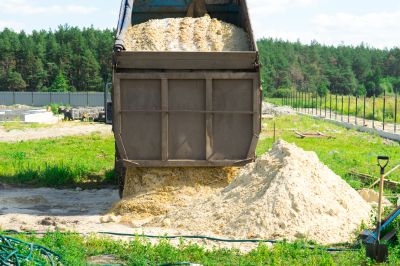Ultimate Selection of Cement Delivery Products for Construction Projects
Find high-quality solutions tailored to meet the demands of cement transportation, mixing, and pouring in large-scale projects.
 Products designed for cement deliveries encompass a wide range of equipment and accessories that facilitate the safe, efficient, and accurate transportation of cement from suppliers to construction sites. These products are essential for ensuring that cement remains in optimal condition during transit, preventing contamination, and enabling easy handling upon arrival. From durable containers to specialized transport vehicles, the right selection of products can significantly streamline construction workflows.
Products designed for cement deliveries encompass a wide range of equipment and accessories that facilitate the safe, efficient, and accurate transportation of cement from suppliers to construction sites. These products are essential for ensuring that cement remains in optimal condition during transit, preventing contamination, and enabling easy handling upon arrival. From durable containers to specialized transport vehicles, the right selection of products can significantly streamline construction workflows.
Top Overall Option
Heavy-Duty Cement Transport Container
A versatile and durable container designed specifically for the transportation of bulk cement. It features reinforced walls, weather-resistant seals, and ergonomic handles for easy handling. This container is suitable for various transport methods and helps protect cement from moisture and contamination during transit.
Types of Products For Cement Deliveries
Bulk Cement Trucks
Specialized trucks equipped with large hoppers for transporting bulk quantities of cement over long distances.
Cement Mixer Trucks
Vehicles with rotating drums that mix cement during transit to ensure it remains workable upon arrival.
Portable Cement Silos
Mobile storage units that allow for on-site cement mixing and immediate use, reducing handling time.
Bulk Cement Bags
Heavy-duty bags designed for manual or small-scale transport of cement for localized projects.
Weatherproof Cement Containers
Sealed containers that protect cement from moisture and environmental exposure during storage and transport.
Cement Transport Buckets
Robust buckets used for manual handling and pouring of cement at the site.
Hydraulic Cement Dispensers
Equipment that facilitates precise pouring and dispensing of cement in construction applications.
Cement Delivery Hoppers
Open or enclosed hoppers designed to receive and transfer cement efficiently on-site.
Cement Loading Ramps
Ramps that assist in loading cement containers or trucks onto transport vehicles.
Cement Mixer Attachments
Portable attachments for mixing cement directly at the delivery site, suitable for small batches.
Cement Storage Bins
Large bins used to store cement safely on-site before use, with easy access features.
Cement Pumping Equipment
Machines designed to pump cement directly into formwork or specific locations with precision.
Cement Delivery Scales
Accurate weighing devices for measuring cement loads during transport and delivery.
Cement Mixing Trucks
Vehicles equipped with mixing drums that combine cement with other materials en route.
Insulated Cement Containers
Containers with insulation features to maintain cement temperature during extended transport.
Cement Handling Carts
Mobility aids for transporting small quantities of cement across construction sites.
Popular Choices
Widely used for large-scale cement transportation, offering capacity and efficiency.
Commonly seen on construction sites for delivering ready-mixed cement for immediate use.
Popular for projects requiring on-site cement storage and quick access.
Favored for protecting cement during transit and storage in varying weather conditions.
Preferred for their ease of transferring cement from trucks to site equipment.
Commonly used to facilitate smooth loading of cement containers onto transport vehicles.
Popular for precise and controlled pouring in construction applications.
Frequently chosen for on-site storage to streamline workflow.
Often used for efficient transfer of cement into formworks or specific locations.
Valued for maintaining cement quality during longer transport durations.
Useful for small-scale, quick transport of cement around the site.
Popular for small batches and quick mixing at the site.
Convenient for localized projects requiring manual handling.
Assist in controlled pouring and reducing waste during transfer.
Widely used for protecting cement during transit over long distances.
Transporting cement requires careful consideration of environmental factors such as moisture and temperature, which can affect the quality of the material. Therefore, many products are engineered with features that protect against these elements, ensuring the cement remains usable and consistent. Additionally, ease of loading and unloading is a key factor, with many products designed to accommodate various site conditions and handling equipment.
The variety of products available also extends to accessories that assist in mixing, measuring, and pouring cement accurately. These tools and containers are designed to support different project scales, from small residential builds to large commercial developments. Selecting appropriate products not only enhances efficiency but also helps maintain safety standards on site. Overall, investing in the right products for cement deliveries can contribute to smoother project execution and better material management.
Key Buying Considerations
- Capacity requirements based on project size and volume of cement needed.
- Material durability and resistance to environmental factors such as moisture and temperature.
- Ease of handling, including ergonomic design and weight considerations.
- Compatibility with existing transport and handling equipment.
- Sealing features to prevent contamination and moisture ingress.
- Mobility features such as wheels, handles, or ramps for ease of movement.
- Material compatibility to ensure no adverse reactions with cement.
- Ease of cleaning and maintenance of containers and equipment.
- Transport regulations and safety standards compliance.
- Cost-effectiveness relative to project scale and frequency of use.
- Availability of replacement parts and accessories.
- Features that support efficient loading and unloading processes.
- Insulation or temperature control options for extended transport times.
- Environmental exposure protection, especially in outdoor or harsh conditions.
- Versatility for different types of cement or mixed materials.
